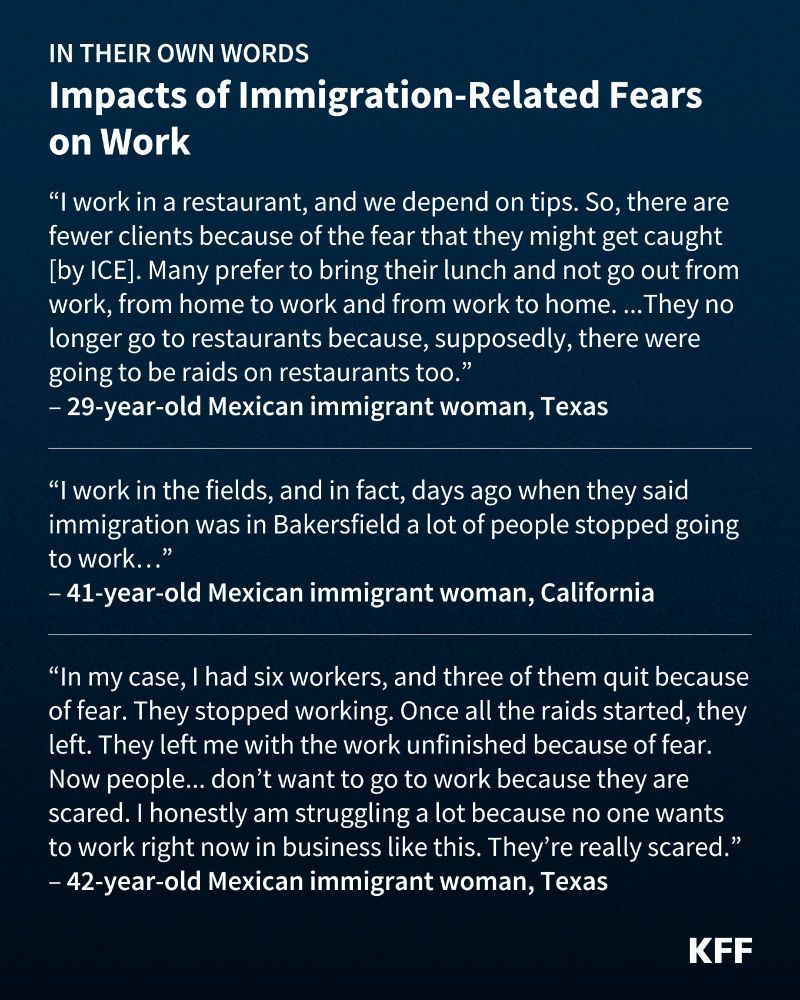Samantha Artiga
@sartiga.bsky.social
990 followers
250 following
53 posts
VP and Director, Racial Equity and Health Policy, @KFF.org
#Healthpolicy analysis focused on racial health disparities and immigrant health and well-being
Posts
Media
Videos
Starter Packs
Pinned
Samantha Artiga
@sartiga.bsky.social
· Nov 21
Samantha Artiga
@sartiga.bsky.social
· Jul 17
Samantha Artiga
@sartiga.bsky.social
· Jul 17
Samantha Artiga
@sartiga.bsky.social
· Jul 17
Samantha Artiga
@sartiga.bsky.social
· May 22
Samantha Artiga
@sartiga.bsky.social
· May 22
Samantha Artiga
@sartiga.bsky.social
· May 21

Proposed Medicaid Federal Match Penalty for States that Have Expanded Coverage for Immigrants: State-by-State Estimates | KFF
This analysis examines the potential impacts of a provision in the House reconciliation bill that proposes reducing the federal matching rate for the Affordable Care Act (ACA) Medicaid expansion popul...
www.kff.org
Samantha Artiga
@sartiga.bsky.social
· May 21
Samantha Artiga
@sartiga.bsky.social
· May 21
Samantha Artiga
@sartiga.bsky.social
· May 21
Samantha Artiga
@sartiga.bsky.social
· May 21

Proposed Medicaid Federal Match Penalty for States that Have Expanded Coverage for Immigrants: State-by-State Estimates | KFF
This analysis examines the potential impacts of a provision in the House reconciliation bill that proposes reducing the federal matching rate for the Affordable Care Act (ACA) Medicaid expansion popul...
www.kff.org
Samantha Artiga
@sartiga.bsky.social
· May 16
Samantha Artiga
@sartiga.bsky.social
· May 16
Samantha Artiga
@sartiga.bsky.social
· May 16

Potential Impacts of 2025 Budget Reconciliation on Health Coverage for Immigrant Families | KFF
This policy watch discusses key provisions in the draft 2025 budget reconciliation legislation that are aimed at limiting health coverage for immigrant families.
www.kff.org
Samantha Artiga
@sartiga.bsky.social
· May 13
Samantha Artiga
@sartiga.bsky.social
· May 13
Samantha Artiga
@sartiga.bsky.social
· May 13

Which States Would Be Affected by a House Proposal to Cut Federal Medicaid Funding for States That Cover Undocumented Immigrants?
KFF data show that as of April 2025, 14 states plus DC use state-only dollars to provide health coverage to children regardless of immigration status, including 7 states that also do so for at least s...
www.kff.org










